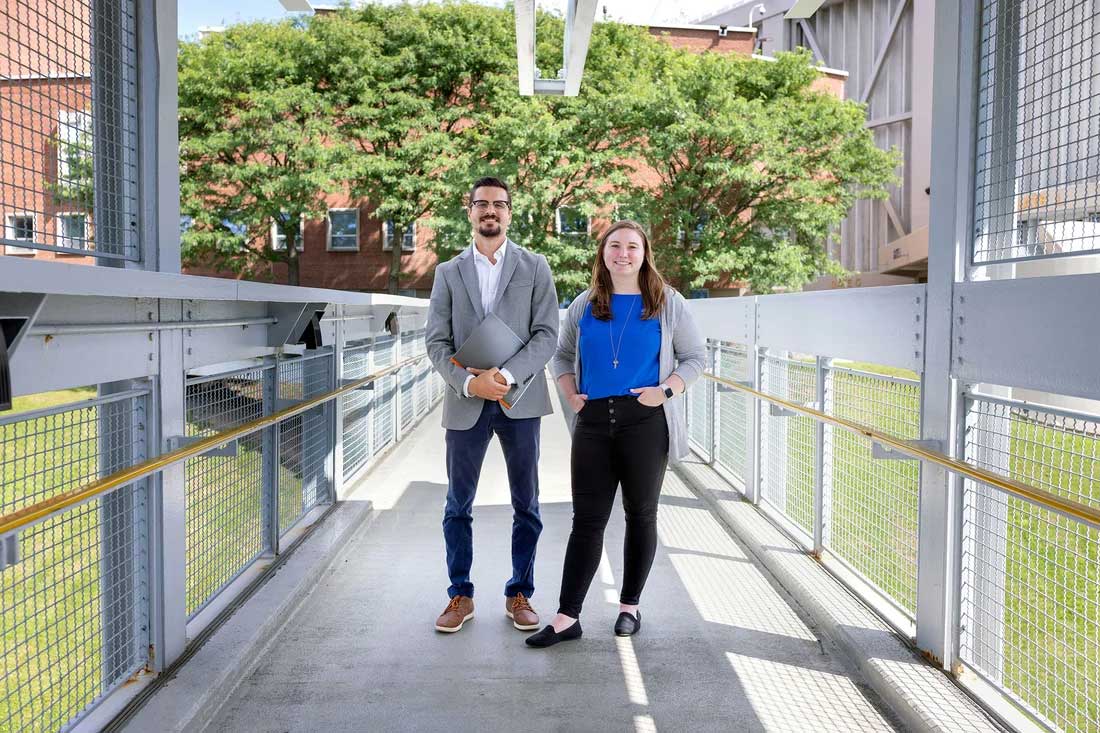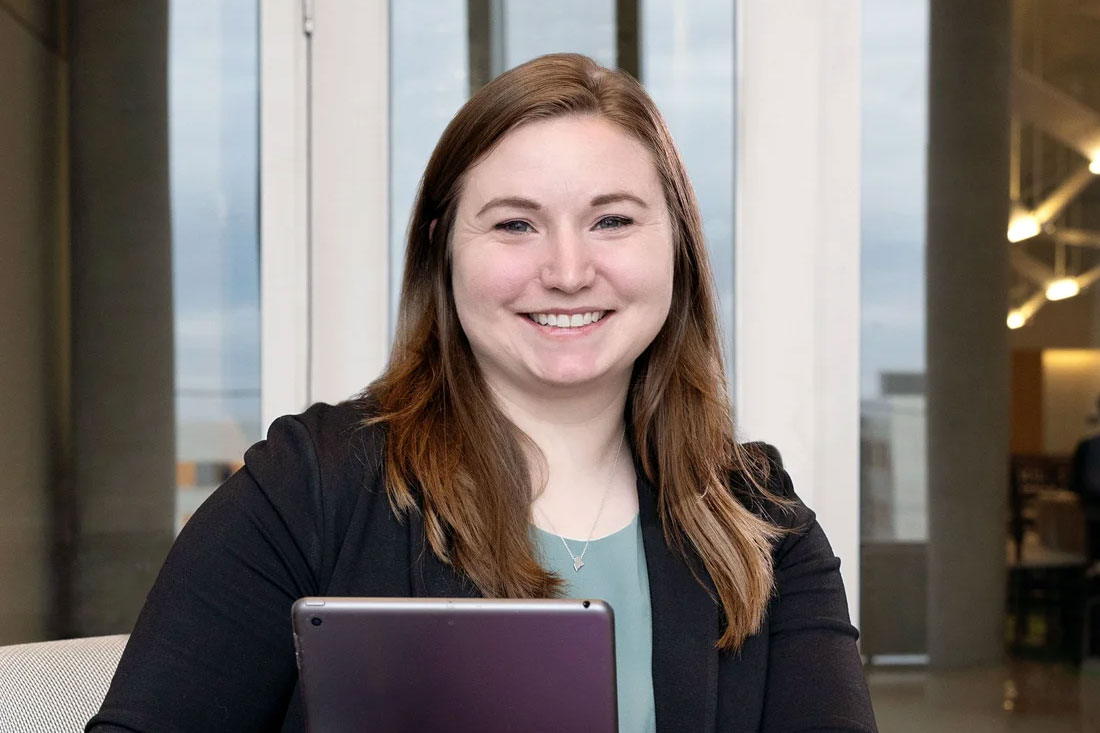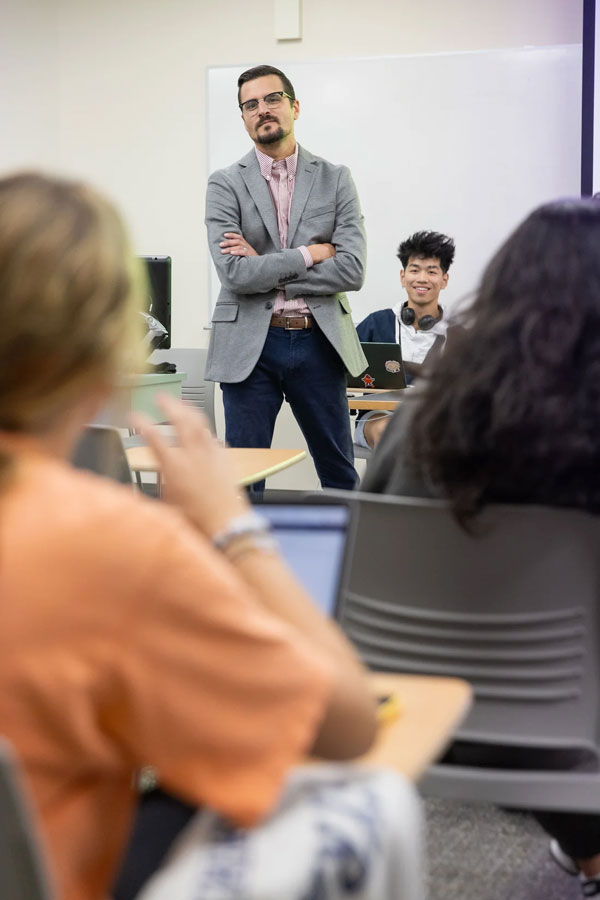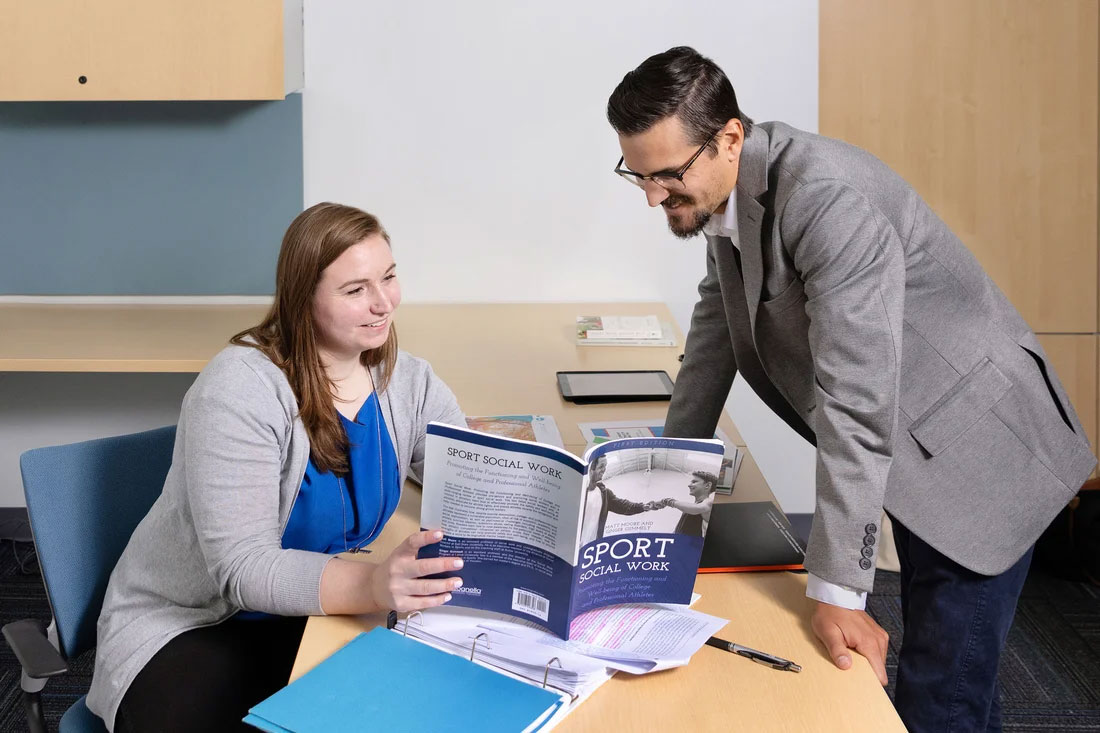
Rachel Hamilton G’24 has a long-term personal connection to college athletics and a great respect for the skill and dedication of student-athletes. When she enrolled in Falk College as a social work graduate student, she sought to combine her interest in promoting mental health and well-being and college athletics to support student-athletes. “I’m very passionate about working with student-athletes,” Hamilton says.
Through her foundation level field placement, Hamilton became the first social work student to intern with Syracuse Athletics and organized several mental health outreach initiatives. She emphasizes the importance of creating student-athlete mental health awareness, building positive interpersonal relationships, and having a support network while incorporating a social work perspective that considers societal and athletic trends and can help shape policy work. It’s an experience she highly values, and she’s forging new ground in the emerging field of sport social work. “Rachel is a proven leader and innovator,” says Ken Marfilius ’11, Falk College assistant dean of online education, social work associate teaching professor, and Hamilton’s first-year field placement supervisor and mentor.

Dealing With Pressure
Pressure on student-athletes today has increased with the advent of name, image and likeness agreements, the transfer portal, social media activity and brand building. These challenges add to the traditional pressures of performing on the field and in the classroom while dealing with other issues of college life. “Student-athletes have an exceptional amount of pressure placed on them,” Hamilton says. “It makes me want to work as an advocate, a resource and a support for these individuals.”
Because of the competitive nature of sports, there’s often a stigma attached to seeking mental health services—which some view as a sign of weakness—but today’s student-athletes have become more proactive, Hamilton says. A range of factors can influence mental health, Marfilius says, including adverse childhood experiences that individuals need help addressing. “Our goal is to create a culture of mental health and understanding and promote the health and well-being of student-athletes through a social justice framework,” says Marfilius, a former member of the Orange rowing team. “Sports also build resilience and serve as a protective factor.”

Creating a Community of Support
In collaboration with the athletics department, Hamilton established Mental Health Monday, a bimonthly event that invited student-athletes, coaches and staff to take a break in a stress-free, community-friendly space and connect with those around them. She organized two Mental Health Awareness Open Houses featuring yoga, pet therapy, stress-reducing crafts and other activities, as well as educational mental health workshops that she conducted for coaches and staff.
During her first-year internship, Hamilton served on the athletics department’s Mental Health Committee with administrators and Barnes Center at The Arch counselors. She oversaw the Student-Athlete Advisory Committee’s Mental Health and Well-Being Subcommittee, which seeks to provide advocacy and preventative outreach to raise awareness. She was also involved with Athletics’ Diversity, Equity and Inclusion Committee and worked with the LGBTQ Resource Center to create a training curriculum, educating student-athletes, coaches and staff on LGBTQ+ topics. “This work has given me an opportunity to really immerse myself in what it’s like to be a student-athlete today,” she says. “I see an opportunity for the School of Social Work to really forge a bond with the athletics department and have a symbiotic relationship.”
Jon Mitchell, senior associate athletics director, sports medicine, appreciates the social work principles they’ve introduced through their work to benefit student-athletes. “In college athletics, we are continually challenged to identify new ways to best serve our student-athletes,” Mitchell says. “This program has the potential to provide us with another resource to help serve the bigger purpose.”

Promoting Sport Social Work
For her concentration level internship this year, Hamilton is with Le Moyne College’s counseling center, working with student-athletes in a clinical setting. In the Fall ’24 semester, Marfilius plans to offer Introduction to Sport Social Work, a new elective course open to undergraduate and graduate students that he created in collaboration with Hamilton, who serves as his research assistant.
“I would love to see more social workers be specifically trained in the concentration of sport social work,” Hamilton says. “The social work profession uniquely positions itself to aid in supporting student-athletes.”
An SU Story by Jay Cox originally published on October 4, 2023.
